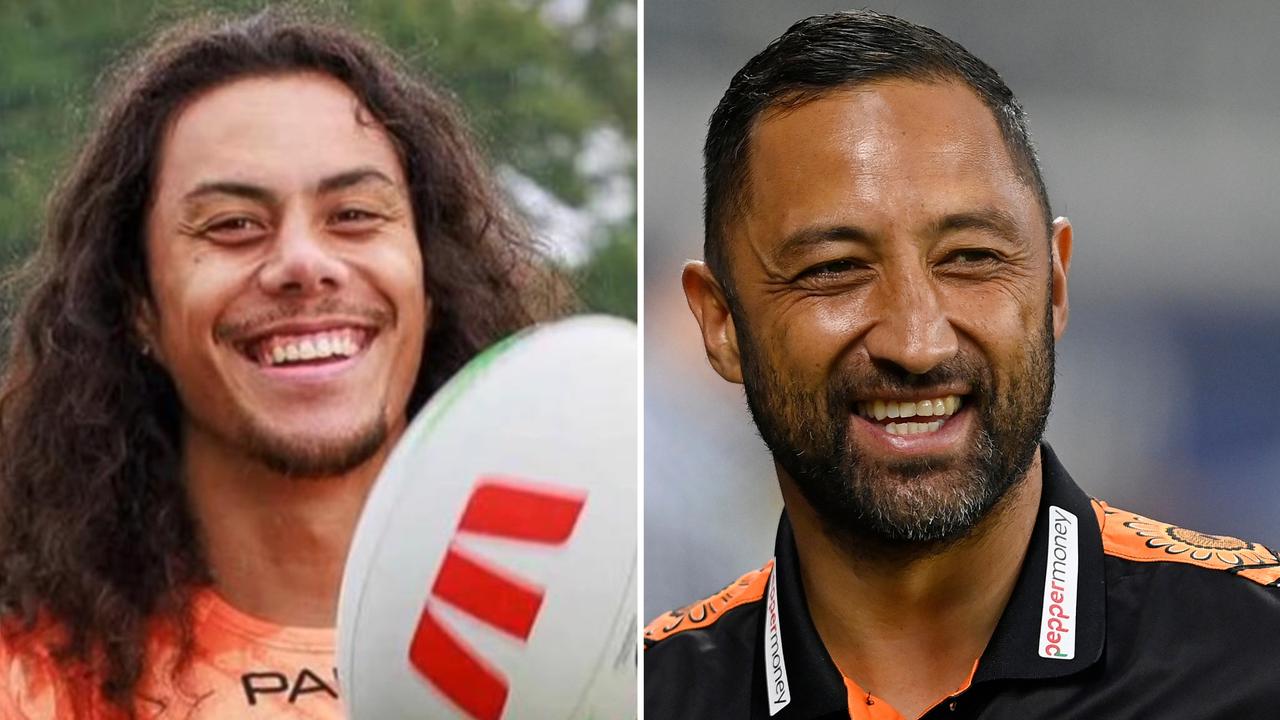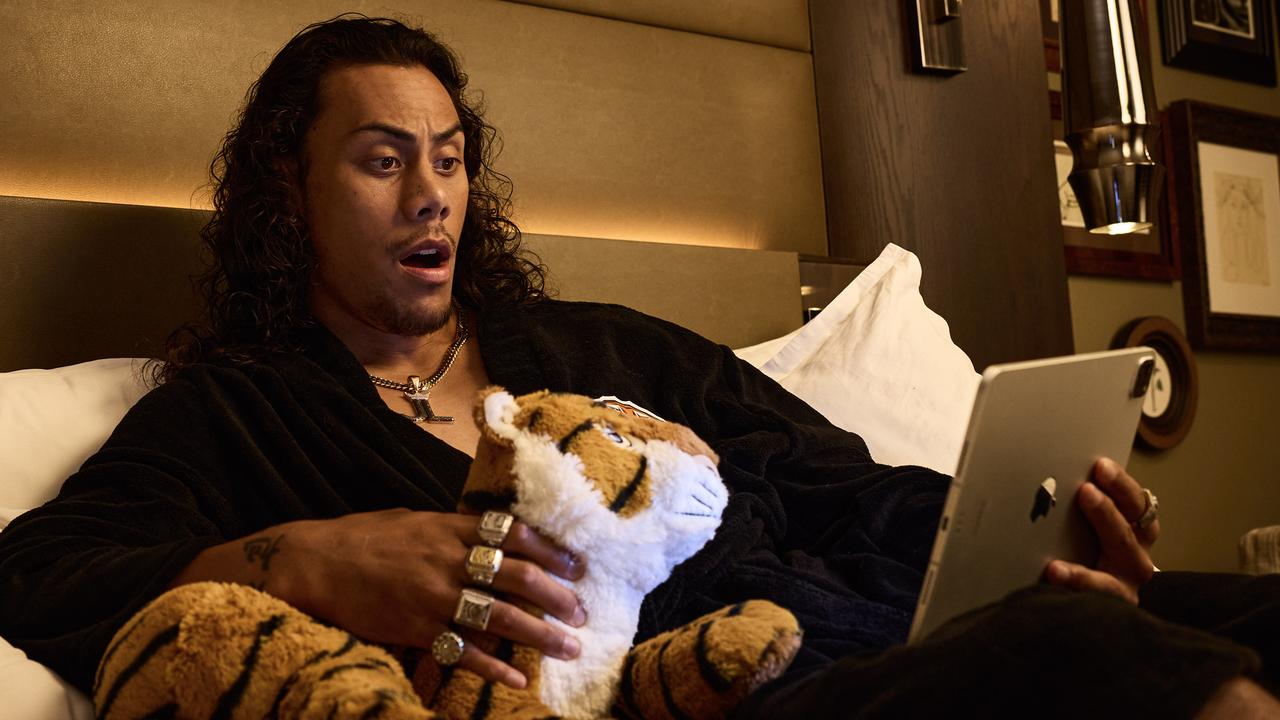Time for NRL players to put their dreams of playing in the NFL on ice
A VICTORY for common sense is a phrase not common in the modern NRL but, lawdy lawdy, it finally happened, writes Paul Kent.
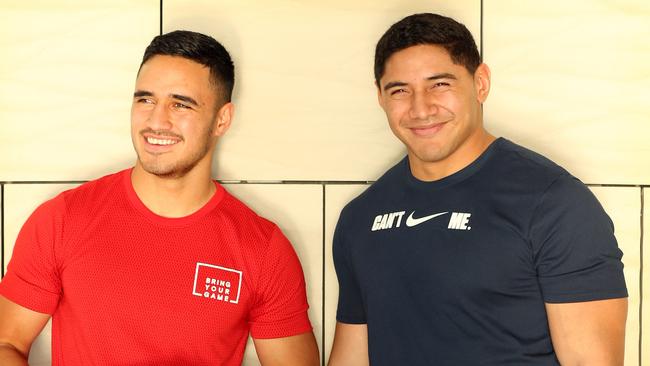
Opinion
Don't miss out on the headlines from Opinion. Followed categories will be added to My News.
A VICTORY for common sense is a phrase not common in the modern NRL but, lawdy lawdy, it finally happened.
We should mark it down, celebrate it.
It is the date the game finally listened to the clubs but, most of all, finally listened to the fans.
Once again it took the club bosses to get the job done, raising the question why the NRL too often refuses to take advice from the game’s stakeholders on matters relating to their core business.
Do that, and that other problem monstering the game right now might even disappear.
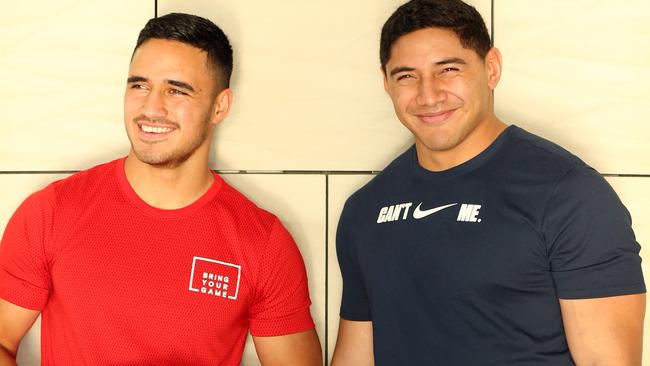
At the urging of the 16 club chief executives the NRL will ban contracted players from trialling for NFL contracts.
Jason Taumalolo and Valentine Holmes should never have been allowed to step foot on a gridiron with NFL scouts invited in to watch them.
They spoke of dreams and one chances and opportunities.
In the real world, the NRL should have ordered them back and threatened any refusal with fines, citing that coverall rule of bringing the game into disrepute.
At least Jarryd Hayne, good old number 38, had the grace to ask to be released from his Parramatta contract before he chased the first of his dreams.
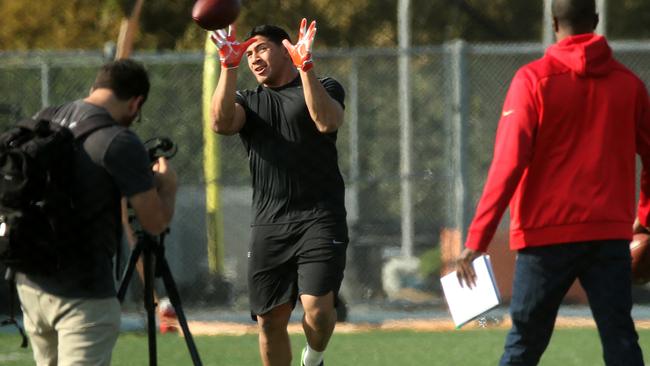
Allowing Taumalolo and Holmes to chance their hand for NFL contracts — when any interest from a team would surely result in the player asking to be released from his NRL deal — is as backward as anything that has happened in this game.
Madness.
Yet by saying nothing we encouraged it, because it appears we’re in the dream business.
Trialling for NFL contracts is not the same as what happens on Friday night when Cronulla captain Paul Gallen gets into the ring against Canberra’s Junior Paulo for three two-minute rounds.
Players can moonlight as moderately successful pugilists or parts thereof and still play NRL for their clubs.
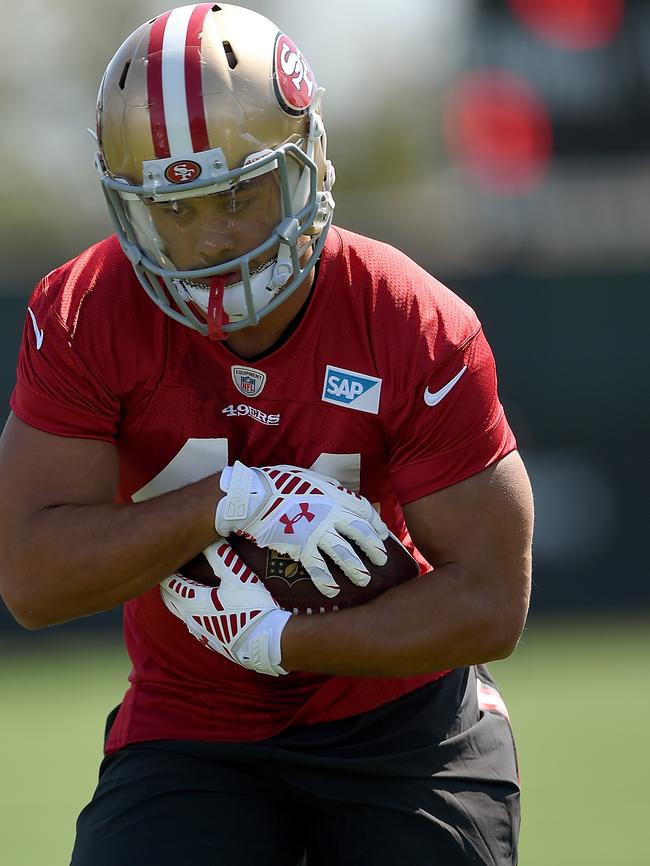
A black eye doesn’t prevent anyone taking the next hit up.
They can’t continue to play for their team if they successfully trial for the NFL, as they couldn’t with rugby union or AFL.
Underwriting the clubs’ concerns is the risk of a player tearing a cruciate ligament while being forced to accelerate and cut and, when it usually happens, stop quickly.
It will be chiselled in as the perfect response when a player inevitably complains about the ban, citing his limited window to earn income as a professional athlete.
How can any player guarantee that won’t happen?
Privately, the clubs know there are greater concerns at play.
The integrity of the game, for one.

